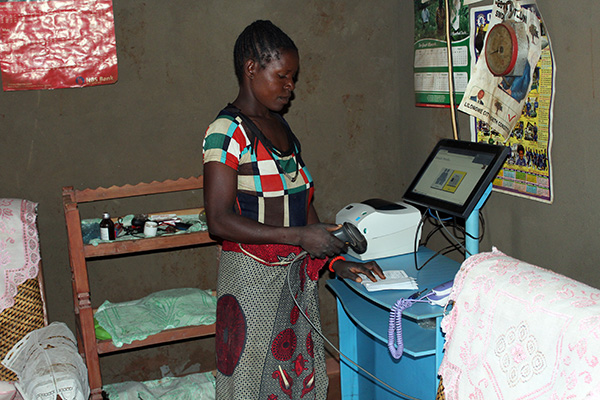Technology underpins many recent population health achievements. However, in many rural parts of the developing world, implementing technology-driven solutions to health problems can be a challenge. Leveraging technology, whenever possible, is a goal of the Bloomberg Philanthropies Data for Health Initiative (D4H), particularly in terms of strengthening civil registration and vital statistics (CRVS).

In rural Malawi, a key population health goal lies in tabulating CRVS, or recording births and deaths. This is a priority for the Malawian Ministry of Health since the vast majority of births and deaths in the country go unregistered. Rural areas lack easy access to registration facilities – particularly as births and deaths mainly occur at home in remote villages.
To help Malawi address this priority, D4H has teamed up with Baobab Health Trust (BHT), a national NGO dedicated to revolutionizing the use of technology in developing health care environments, and University of Pittsburgh. The D4H/BHT partnership has established a system of “electronic village registers” to sustainably and adequately monitor births and deaths across 50 villages in Malawi. The “villages” are battery-operated computer stations (all run off solar paneling). Each Village Headman and a designated “secretary” are trained on how to use the computer and its software to enter the data for births and deaths each month. This data is fed directly to the National Registration Bureau in Lilongwe.
The program has been very successful, to date, with work stations established in 50 villages, reaching a cumulative population of 27,631. In the time since the program started- December 2015- a total of 40,176 births and deaths have been reported to the National Registration Bureau. The Data for Health team has supported BHT and University of Pittsburgh in ongoing weekly phone consultations and site visits for 50 villages. During site visits, BHT addresses technical issues and assists village leaders in the usage of the system. Additionally, they are planning for all future visits to also be an opportunity to hand-deliver birth certificates from Lilongwe.
CRVS improvement is at the top of the global health agenda since improved public health analysis and policy flows from accurate recordkeeping. Often the obstacles to CRVS lie in local conditions, such as environmental barriers to reaching healthcare facilities or an unskilled work force. In areas where local partners have the means to bridge obstacles, technology solutions such as “electronic village registers” can help improve CRVS for health planners and policy makers.